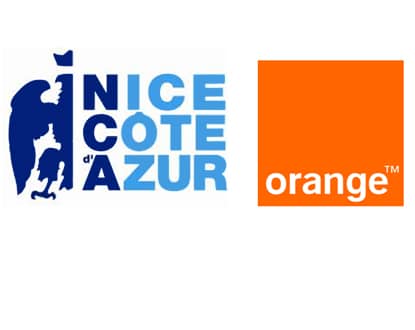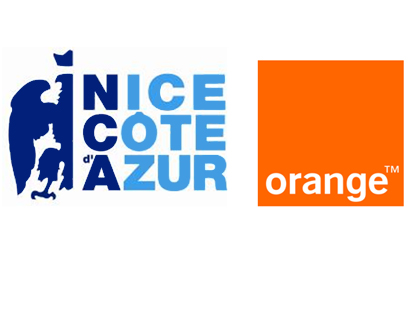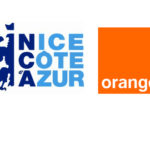In September 2010, the companies ORANGE Lab and THALES invited Nice Côte d’Azur to respond to the first call for projects of the new European PPP (Public-Private Partnership) program entitled: “Future Internet to jointly build the vision of multimodality in the movement of people and goods in the sustainable city of tomorrow.”
 The technological solutions conceived within the framework of this consortium’s work during the two years of this project will lead to concrete and operational solutions that can be experimented with and implemented on a full scale in the Nice Côte d’Azur territory.
The technological solutions conceived within the framework of this consortium’s work during the two years of this project will lead to concrete and operational solutions that can be experimented with and implemented on a full scale in the Nice Côte d’Azur territory.
Nice Côte d’Azur did not hesitate to position itself on this project, which fits perfectly into its strategy of a sustainable and smart city. NCA wants to be a model territory in terms of innovation in all areas and particularly concerning sustainable development and information technology, a laboratory for the best in research, innovation, experimentation, and practical applications for all aspects of our daily life.
Because it is the place of all possibilities, the metropolis is the privileged space in which a certain image of modernity is embodied. In a context of massive urbanization, cities have no choice but to transform their networks and optimize the use of associated resources, especially as these are limited.
This is why the city must transform to become digital and smart. A digital city is one where the elements of the networks that constitute it (whether they are traffic lights, transport networks, parking spaces, vehicles, or of course the citizens themselves) constantly produce data thanks to sensors, which can be retrieved and used in real-time. Moreover, it is a city where different parts of a network are linked to “talk” to each other and transform data into information. This digitization and interconnection will enable the digital city to be smart and will lead both citizens and managers to make informed decisions, with regard to the general well-being.
The challenges of intelligent transportation go beyond merely smooth traffic flow and require sophisticated applications for transport users as well as for infrastructure operators. The mobile phone can be considered a privileged access point to these applications for public transport users. In this regard, mobile contactless technology appears very promising.
Regarding the transport of goods, tracking and localization solutions are crucial, as are flow optimization and delivery planning tools. Finally, the individual vehicle must have telecommunication systems to stay “connected” at all times.
“Innovation is the driving force behind the transformation of the city to make it smarter,” said Christian Estrosi during the presentation conference.
Nice Côte d’Azur has its rightful place to collaborate in building the “Instant mobility” project due to its experience, skills, and vision. Thanks to innovative projects, it will be possible to contribute effectively to constructing the mobility of the future, relying particularly on:
The deployment of contactless mobile services using NFC (Near Field Communication) technology, for which Nice launched nearly a year ago and as a European first with the first commercial offers directly to citizens.
The efficient transport network, which, in addition to the tramway, bus network, and Blue Bikes, has recently been enhanced with 100% electric vehicles in car-sharing. In fact, Nice Côte d’Azur is the first community in France to roll out, on a large scale, the car-sharing system, exclusively with electric cars. In the Nice Côte d’Azur territory, 210 electric vehicles will eventually be distributed across 70 stations.
The EcoCité of Nice Côte d’Azur, established at the heart of the National Interest Operation of the Var plain, is the essential component of the eco-compatible transformation of the territory in terms of planning, environment, and economic development. The EcoCité is designed to become the laboratory of sustainable development and the innovation engine of the metropolis, centered around four strategic axes:
- Choosing responsible urbanization
- Creating tomorrow’s mobility
- Striving for energy autonomy
- Embodying the smart city of the future.
The multimodal hub will allow for the construction of a coherent and complementary transport offering, centered around the new large multimodal hub of Nice-Saint Augustin (TGV, Airport, TER, tramway, bus station, park-and-ride, soft modes, and eventually the LGV) and three other main exchange hubs: Thiers station, Pont Michel, and Lingostière.
“With these strengths, Nice Côte d’Azur will be able to make the needs of urban users heard and be an active prescriber of the best transport services using all the technological resources of the future Internet,” concluded Christian Estrosi.



